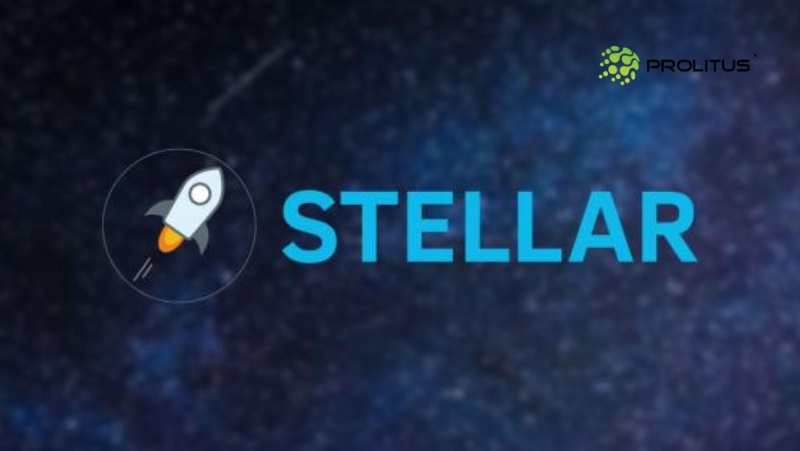Introduction:
In today's globalized world, cross-border transactions play a vital role in international trade, remittances, and economic growth. However, traditional methods of conducting such transactions are often slow, expensive, and burdened with intermediaries. Enter the Stellar Consensus Protocol (SCP), a groundbreaking technology that revolutionizes cross-border transactions by offering speed, efficiency, and security. In this article, we will delve into the intricacies of SCP and explore how it is paving the way for seamless cross-border transactions.
Understanding Cross-Border Transactions:
Cross-border transactions refer to financial exchanges that occur between individuals, businesses, or institutions across different countries. These transactions involve transferring money, assets, or information across borders. Unfortunately, traditional cross-border transactions are plagued by various challenges such as high costs, lengthy processing times, and lack of transparency. These limitations have hindered economic growth, financial inclusion, and global connectivity.
Exploring Stellar Network:
The Stellar network is a decentralized platform that aims to facilitate fast and low-cost cross-border transactions. Unlike traditional banking systems, which rely on a complex network of intermediaries, Stellar connects participants directly through its blockchain-based infrastructure. Stellar's native cryptocurrency, Lumens (XLM), serves as a bridge currency, enabling seamless conversion and transfer of value across borders. The network's key features include fast settlement times, low transaction fees, and the ability to support various asset types.
How Stellar Consensus Protocol Works:
At the core of Stellar's success lies the Stellar Consensus Protocol. SCP is a consensus algorithm designed to facilitate agreement among network participants on the validity and order of transactions. Unlike traditional consensus algorithms like Proof of Work (PoW) or Proof of Stake (PoS), SCP does not rely on energy-intensive computations or stake-based voting. Instead, SCP utilizes a federated Byzantine agreement protocol, where a selected group of nodes (known as validators) collectively validate and agree upon the network's state.
Advantages of Stellar Consensus Protocol for Cross-Border Transactions:
SCP offers several advantages that make it ideal for cross-border transactions. Firstly, SCP ensures fast settlement times, with transactions being confirmed within seconds. This eliminates the need for long waiting periods associated with traditional cross-border transfers. Secondly, SCP significantly reduces transaction costs, making cross-border transactions more affordable for individuals and businesses alike. Moreover, SCP enhances security and trust through its decentralized nature, reducing the risk of fraud and manipulation.
Real-World Examples of Stellar Consensus Protocol in Action:
The impact of SCP on cross-border transactions is already being felt across various sectors. For instance, in the remittance industry, where migrant workers send money back home, SCP has enabled faster and more cost-effective transfers, empowering individuals and their families. Additionally, SCP has facilitated seamless international trade, allowing businesses to transact across borders with greater ease and efficiency. Furthermore, SCP has played a crucial role in advancing financial inclusion by providing access to banking services for underserved populations in developing countries.
Future Potential and Innovations of Stellar Consensus Protocol:
As the demand for cross-border transactions continues to grow, SCP has immense potential for scalability and innovation. Stellar Development Foundation (SDF), the organization behind the Stellar network, is actively exploring ways to further enhance SCP's capabilities. This includes improving network throughput, integrating with existing financial systems, and exploring interoperability with other blockchain platforms. The continuous development and evolution of SCP hold the promise of a future where cross-border transactions are seamless, inclusive, and efficient.
Overcoming Challenges and Adoption Barriers:
While SCP holds great promise, there are challenges and barriers to its widespread adoption. One of the primary concerns is regulatory compliance and addressing the potential misuse of cryptocurrencies for illicit activities. Collaborative efforts between industry participants, regulators, and policymakers are necessary to establish clear guidelines and frameworks that foster innovation while ensuring accountability and security. Additionally, education and awareness initiatives are crucial to help stakeholders understand the benefits and potential of SCP.
Comparing Stellar Consensus Protocol with Other Blockchain Solutions:
SCP distinguishes itself from other consensus algorithms like PoW and PoS by offering a more energy-efficient and scalable approach to consensus. SCP's federated Byzantine agreement protocol ensures faster transaction confirmation and significantly reduces energy consumption compared to PoW. Additionally, SCP's consensus mechanism enables low transaction fees, making it more cost-effective than PoS-based systems. These advantages position SCP as a compelling solution for cross-border transactions.
Conclusion:
The Stellar Consensus Protocol is revolutionizing cross-border transactions by offering speed, efficiency, and security. With its ability to facilitate fast settlement times, low transaction costs, and enhanced security, SCP is paving the way for a future where cross-border transactions are seamless and inclusive. As SCP continues to evolve and overcome adoption barriers, its potential to transform global finance and enhance economic connectivity becomes increasingly evident. With SCP at the forefront, we can envision a world where borders are no longer barriers, and financial opportunities are accessible to all.


No comments yet